For the third time, Loro Parque invited members of the German Federal Parliament and their staff, representatives of specialised authorities as well as tourism, nature and animal welfare associations to a high profile Parliamentary Evening at the German Parliamentary Society, which was held on June 21th.
Under the title “Modern zoos – as nature conservation centres and ambassadors of the animal world, important partners for animal protection, education, science and research”, the host of the evening, Dr Gero Hocker, as the agricultural policy spokesman of the FDP parliamentary group, and the President and founder of Loro Parque, Wolfgang Kiessling, emphasised the great importance of modern zoological parks for the unique blue planet Earth in their welcoming addresses. In addition, the evening was about raising awareness among politicians and the public about the devastating loss of biodiversity.
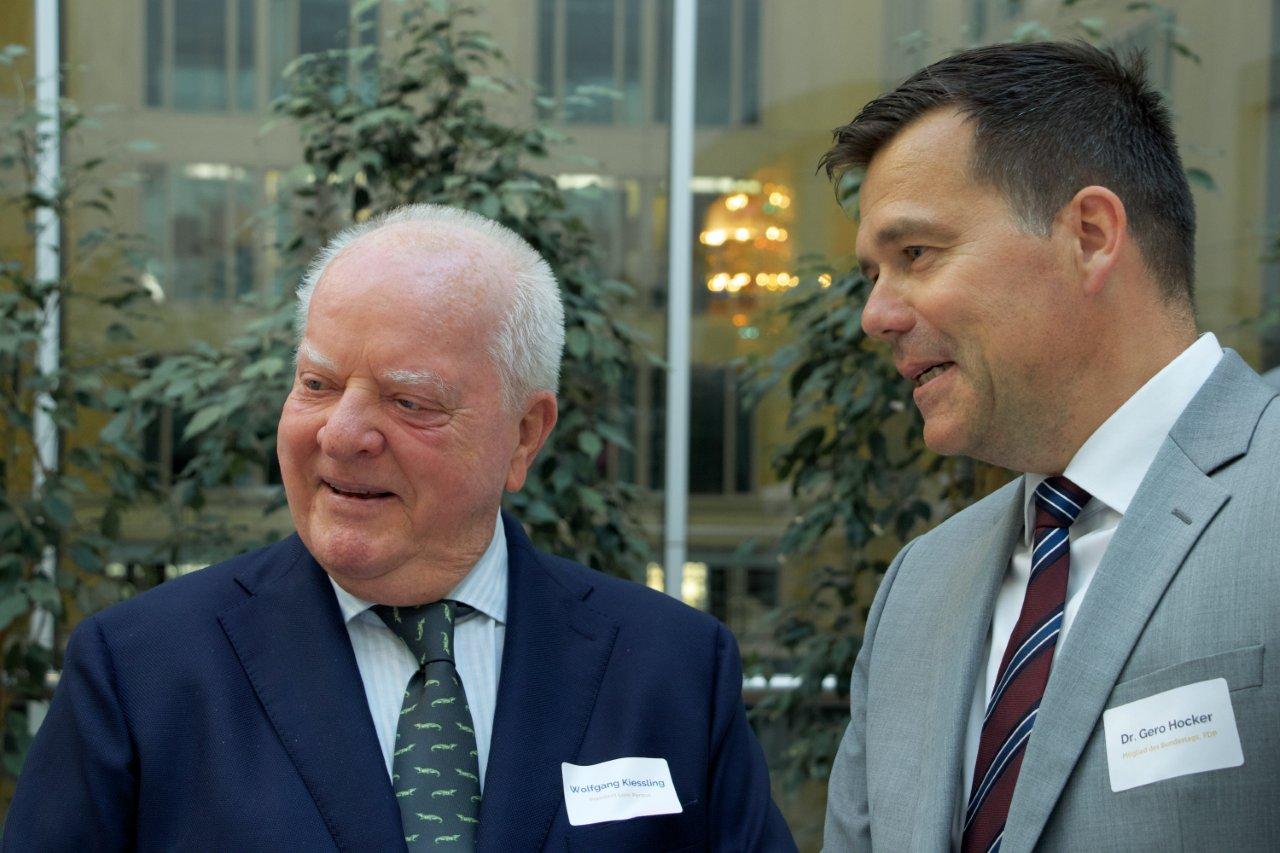
The central theme was not only the direct importance of modern zoos for the protection of nature, species and animals, but also their significance for research and education. Zoological parks are visited by more than 700 million people worldwide every year, and by serving as an authentic meeting place between humans and animals, they raise awareness among their visitors for the need of a more sustainable approach to the use of our natural resources. This was also emphasised in his keynote speech “Zoos as important partners for education and research” by Dr Christian Böhm, who is responsible for “Research on Biodiversity and Ecosystems” at the Federal Ministry of Education and Research.
The importance of the commitment of Loro Parque and its conservation foundation was demonstrated by the President of the Loro Parque Fundación, Christoph Kiessling, in his keynote speech “Species conservation, education, research and climate protection – the contributions of the Loro Parque Fundación to the IUCN’s One Plan Approach to Conservation”.
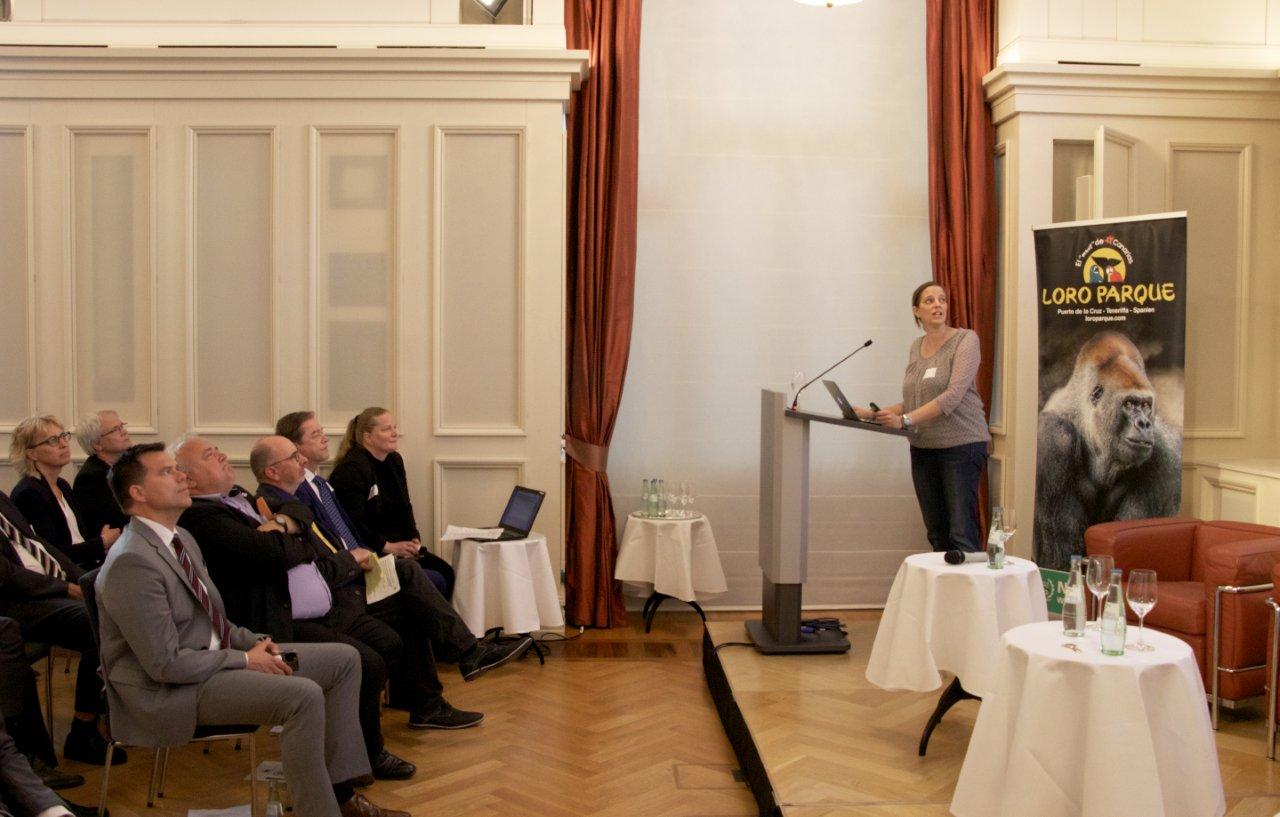
The focus here has been on species conservation projects for rare parrot species and marine conservation projects, while Loro Parque Fundación (LPF) also supports various projects for the protection of lions, orangutans and elephants. In line with the IUCN’s One Plan Approach to Conservation, LPF’s projects are implemented both ex situ through the breeding of endangered species as well as through environmental education and research in Loro Parque and – in cooperation with the local communities – in situ, i.e., in the natural habitats of the animals.
Loro Parque also presented the film “The Truth about Sanctuaries” to the guests of the Parliamentary Evening in a world premiere. This film makes it clear that the demand of radical anti-zoo activists to transfer dolphins, orcas and beluga whales to so-called “sanctuaries”, which are allegedly better for their well-being, which is used as an argument against renowned modern dolphinariums, is in reality nothing more than a pretext to discredit modern zoological institutions and to raise funds from unsuspected animal lovers. Contrary to the claims of anti-zoo agenda motivated groups, well-functioning sanctuaries for cetaceans do not exist anywhere in the world.
The great importance of modern dolphinariums in the sense of the One Plan Approach to Conservation was emphasised by the Duisburg zoo veterinarian and marine mammal expert Dr. Kerstin Ternes in her keynote speech “Dolphins in modern zoos as a model for integrated species conservation – when zoos become the last chance”, prepared in cooperation with the research curator of Nuremberg Zoo, Dr. Lorenzo von Fersen. In it, she made it clear that the ideologically based rejection of modern dolphinariums is dangerous for the protection of nature, species and animals.
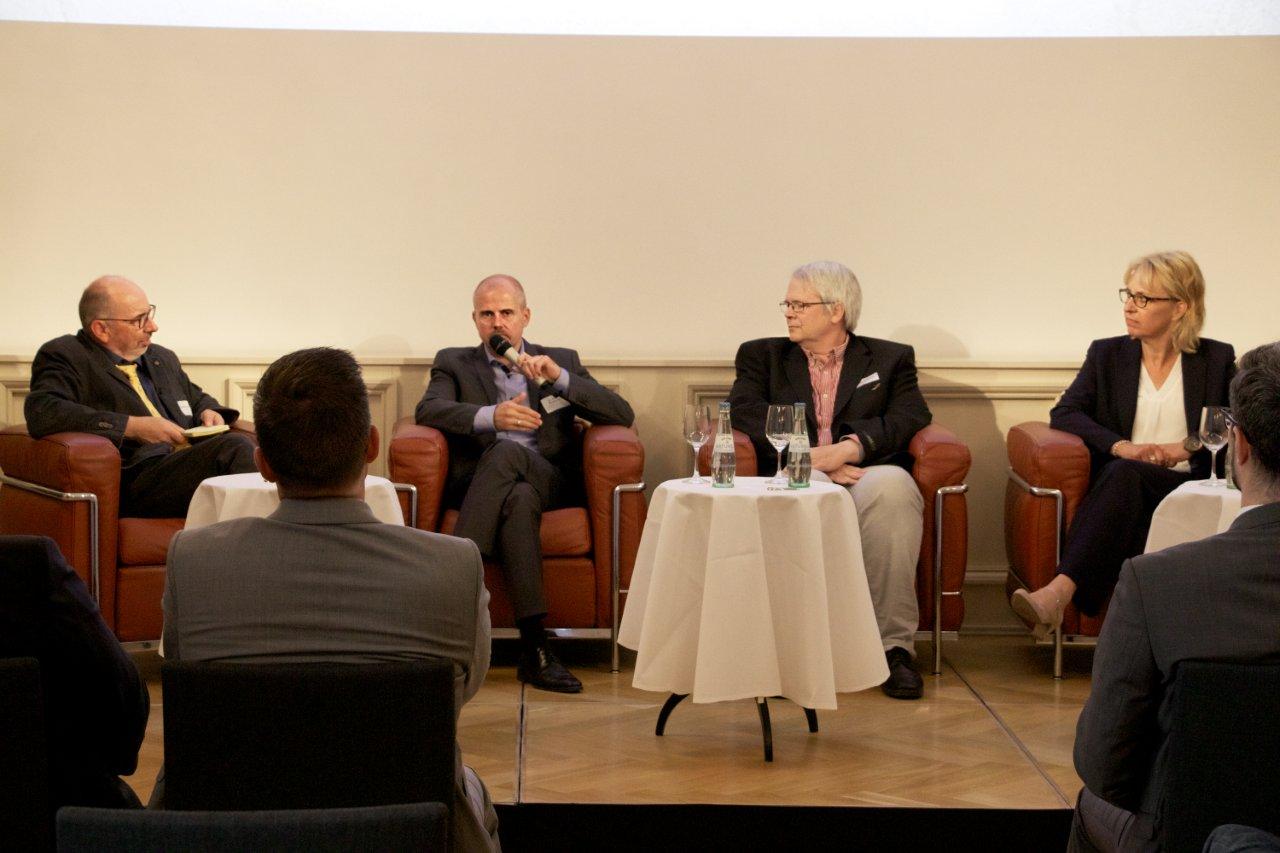
How threatening the situation is in nature conservation as a whole in view of the more than 40,000 animal and plant species already on the Red Lists, and what contribution modern zoos can make to halting and, if possible, reversing this disastrous development, was shown in the keynote speech by the Leipzig Zoo Director and President of the Association of Zoological Gardens (VdZ), Professor Dr Jörg Junhold, entitled “Reverse the Red – species conservation, education and research in the modern zoo”. More and more larger zoos, such as the zoos of Leipzig, Cologne, Vienna, as well as Loro Parque and the zoo associations are getting involved in the IUCN expert groups to counter the dramatic species extinction within the framework of the “Reverse the Red” project.
Furthermore, zoo education is of great importance for raising the environmental awareness of the population. It is no coincidence that the coalition agreement of the Federal Government provides for support for the educational work of zoological parks.
This roundtable discussion, moderated by the Loro Parque’s Wildlife Conservation Officer, Wolfgang Rades, was competently attended by the Deputy Director of the Tierpark Bochum, Kerstin Schulze, the Managing Director of the Federal Association for Professional Nature, Species and Animal Protection (BNA), Dr Martin Singheiser, the Berlin publicist and from the species protection initiative CITIZEN CONSERVATION, Heiko Werning, and the animal ethicist Dr Clemens Wustmans (Humboldt University Berlin). The participants emphasised the great importance of real human-animal encounters under human care, not least also in responsibly managed private husbandry. It was emphasised that this cannot be replaced by any nature documentation, no matter how well made, which, like other virtual possibilities, is repeatedly cited by radical opponents of zoos as an alleged alternative to animal husbandry.
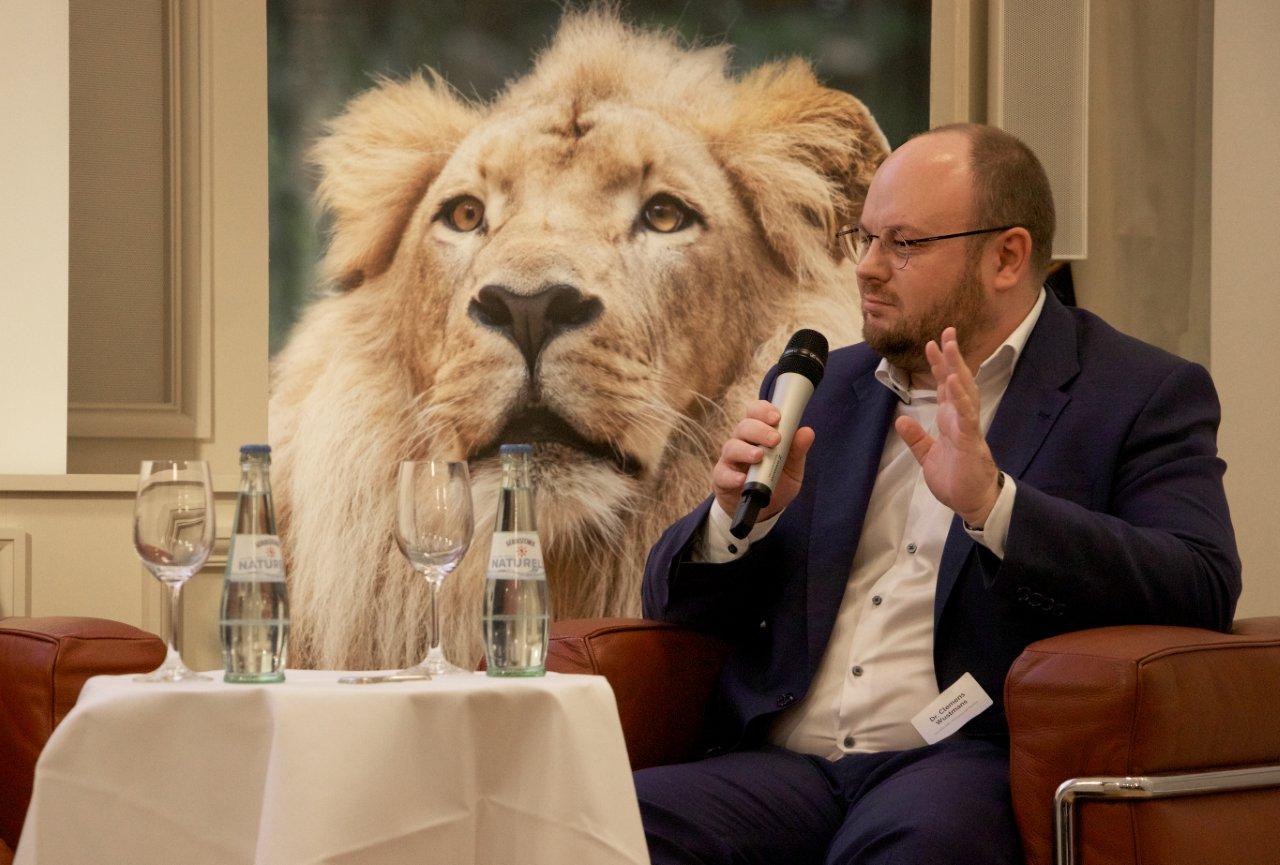
In order to strengthen the importance of zoo education, Kerstin Schulze would like to see that politicians further upgrade the zoo as an extracurricular place of learning. To this end, she suggested an educational partnership, such as exists in North Rhine-Westphalia for museums, archives or memorial sites. In addition, financial support for the maintenance of the zoo as an extracurricular place of learning would make sense, as would anchoring a visit to the zoo as part of a series of lessons in the official school programmes.
Dr. Clemens Wustmans from the Chair of Ethics at the Humboldt University in Berlin presented an important argument in favour of animal-friendly zoo and pet keeping in view of the ethical reservations repeatedly raised by opponents of animal husbandry. The global wave of extinction of endangered species makes it urgently necessary, according to the ethics of responsibility and intervention, that we do everything possible to effectively counteract the extinction of species through the ignorance and ignorance of many people – and this absolutely includes animal-friendly husbandry both in zoos and in the hands of responsible private animal owners.
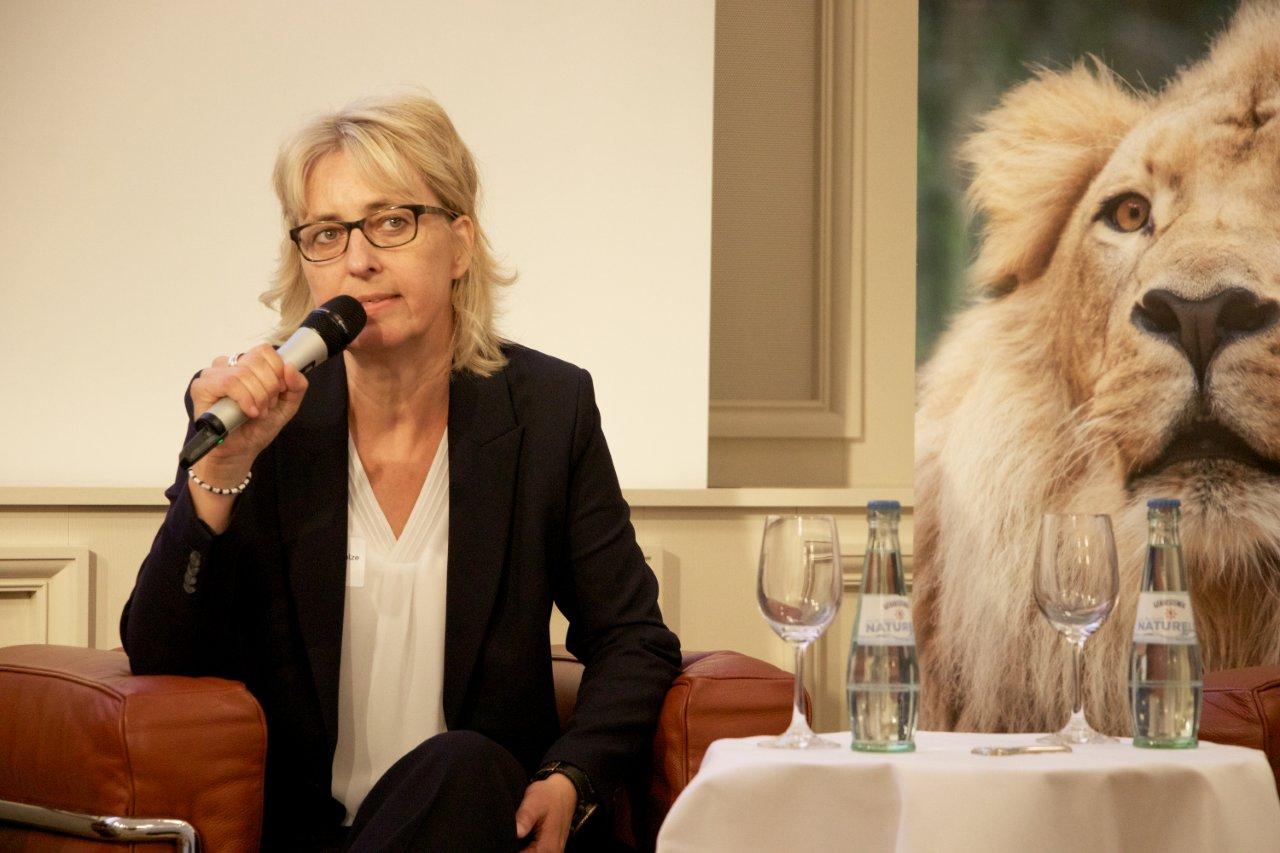
The positive significance of animal husbandry for increasing public awareness of nature preservation, species conservation and also practical animal protection was also reinforced by the fact that all speakers and contributors of this Parliamentary Evening became particularly interested in the animal world and its protection through their early encounters with animals in animal husbandry facilities.
Overall, this Loro Parque Parliamentary Evening gave the guests and participants a solid and comprehensive basis for the interesting conversations and discussions that followed, which were also continued in smaller discussion groups during the further course of this engaging event.










